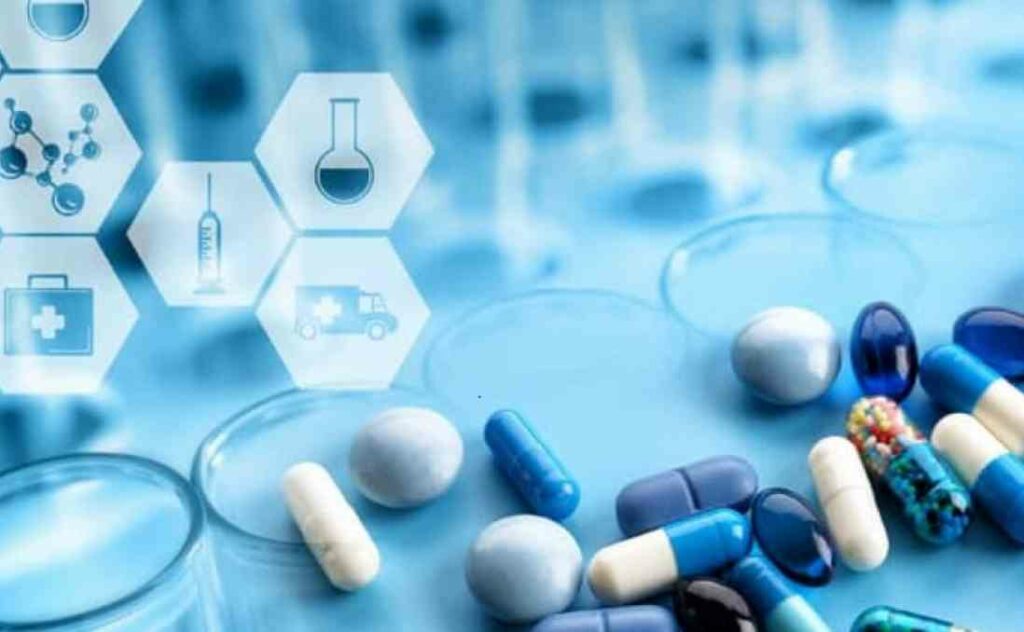Pharmaceuticals, often known as “medicines” or “drugs,” are a critical element of cutting-edge healthcare. They play a critical role in preventing, treating, and managing an extensive range of health conditions, ultimately enhancing the quality of life for millions of human beings worldwide.
In this article, we are able to discover the importance of prescribed drugs within the discipline of fitness, their evolution, and their role in shaping the destiny of medicine.
The Evolution of Pharmaceuticals
The use of pharmaceuticals dates back lots of years, with early civilizations counting on numerous herbal materials for medicinal functions. However, it wasn’t until the nineteenth and twentieth centuries that cutting-edge prescribed drugs emerged, leading to advances in chemistry, microbiology, and pharmacology.
The discovery of antibiotics, including penicillin, revolutionized medication by permitting the effective treatment of bacterial infections. This breakthrough marked the start of the pharmaceutical enterprise’s expansion and its valuable function in healthcare.
Pharmaceuticals in Healthcare
Pharmaceuticals are an essential tool in healthcare, serving several important functions:
Disease Prevention: Vaccines are a top example of prescribed drugs used for disease prevention. They stimulate the immune system to create a defense in opposition to precise infections, drastically decreasing the incidence and spread of illnesses like polio, measles, and influenza.
Treatment and Management: Pharmaceuticals are essential for treating an extensive range of clinical conditions. From antibiotics for bacterial infections to insulin for diabetes management, these capsules help alleviate symptoms and improve sufferers’ overall fitness.
Pain Management: Pain remedy is any other critical component of pharmaceuticals. Analgesics, like acetaminophen and opioids, when prescribed responsibly, play a crucial role in presenting comfort to people tormented by acute or continual pain.
Chronic Disease Control: Pharmaceuticals also play a large role in managing persistent diseases, along with hypertension, diabetes, and coronary heart disease. Medications can help control signs, prevent headaches, and improve the quality of life for people with those conditions.
Research and Development: The pharmaceutical industry invests closely in studies and improvement, striving to find out new tablets, improve current ones, and better recognize the molecular and genetic foundation of illnesses. This ongoing innovation complements healthcare effects and affected person reviews.
Challenges and Ethical Considerations
While prescription drugs have brought great advantages to healthcare, there are also demanding situations and ethical concerns that have to be addressed. Some of the important issues encompass:
Access and affordability: Access to critical medications can be limited, specifically in lower-profit countries or for underprivileged populations. The excessive cost of some prescription drugs can also be a barrier to treatment for many people.
Drug Safety: Ensuring the safety and efficacy of prescribed drugs is a complex and rigorous system. Adverse reactions, recollections, and unforeseen facet results are challenges that the industry constantly faces.
Ethical Marketing: The merchandising of prescription drugs can once in a while be ethically questionable, with issues about the effect of the enterprise on healthcare carriers and the overprescription of medicinal drugs.
Patent and Intellectual Property Issues: The protection of pharmaceutical patents can result in high drug charges and avert the improvement of less costly, well-known options.
The Future of Pharmaceuticals in Healthcare
The pharmaceutical enterprise is always evolving, driven by improvements in technological know-how, technology, and healthcare desires. The future of prescription drugs holds promise in several key regions:
Personalized Medicine: The development of treatments tailored to an individual’s genetic makeup holds fantastic capability. This approach can enhance drug efficacy while minimizing adverse consequences.
Biologics and Gene Therapies: Biologics and gene treatments are on the upward thrust, providing modern answers for a number of illnesses, such as most cancers, uncommon genetic problems, and autoimmune situations.
Drug Repurposing: Reusing current tablets for new purposes, called drug repurposing, is a good approach to accelerate the development of treatments for various conditions.
Digital Health Integration: Pharmaceuticals have become included in digital fitness technology, taking into consideration better tracking, adherence, and management of medicines.
Conclusion
Pharmaceuticals have played a pivotal role in advancing healthcare through the years, contributing to accelerated life expectancy, decreased mortality fees, and a more suitable first rate of existence for many individuals.
While there are challenges and moral considerations to address, the pharmaceutical enterprise keeps innovating, providing promising solutions for the destiny of medicine.
As technology and generation progress, we are able to count on prescribed drugs to stay at the leading edge of healthcare, enhancing the lives of endless individuals around the arena.
FAQs About Pharmaceuticals: The Cornerstone of Modern Healthcare
What are pharmaceuticals, and why are they essential in present-day healthcare?
Pharmaceuticals, frequently referred to as drugs or pills, are chemical materials developed and used for stopping, treating, and managing numerous fitness situations. They are a cornerstone of current healthcare because they help save you diseases, treat illnesses, alleviate signs, and control continual conditions, in the long run improving the best of lifestyles for thousands and thousands of humans worldwide.
How have prescribed drugs developed over the years?
Pharmaceuticals have evolved in an extended manner from the early use of herbal substances in ancient civilizations. The modern-day pharmaceutical industry emerged in the 19th and twentieth centuries, with huge breakthroughs in chemistry, microbiology, and pharmacology. Notable milestones encompass the invention of antibiotics like penicillin and the continuing advancements in research and development.
What are some common examples of pharmaceuticals utilized in healthcare?
Common prescription drugs utilized in healthcare consist of antibiotics for bacterial infections, vaccines for disease prevention, insulin for diabetes management, analgesics for pain relief, and medications for chronic conditions like high blood pressure and heart disease.
How do prescribed drugs make a contribution to disease prevention?
Vaccines are a prime example of prescribed drugs used for disorder prevention. They stimulate the immune system to create defenses against particular infections, reducing the prevalence and unfolding of illnesses like polio, measles, and influenza.
What demanding situations and moral concerns are associated with prescription drugs?
Challenges in the pharmaceutical enterprise consist of problems of getting admission to and affordability, drug protection, ethical marketing, and patent and highbrow property concerns. Ensuring fair access to important medications and addressing protection and moral worries are vital components of the industry.
What does the future hold for pharmaceuticals in healthcare?
The destiny of prescribed drugs in healthcare is promising, with a focal point on personalized medication, biologics, gene healing procedures, drug repurposing, and integration with virtual fitness technologies. These improvements are intended to enhance drug efficacy, decrease unfavorable effects, and improve healthcare results.


